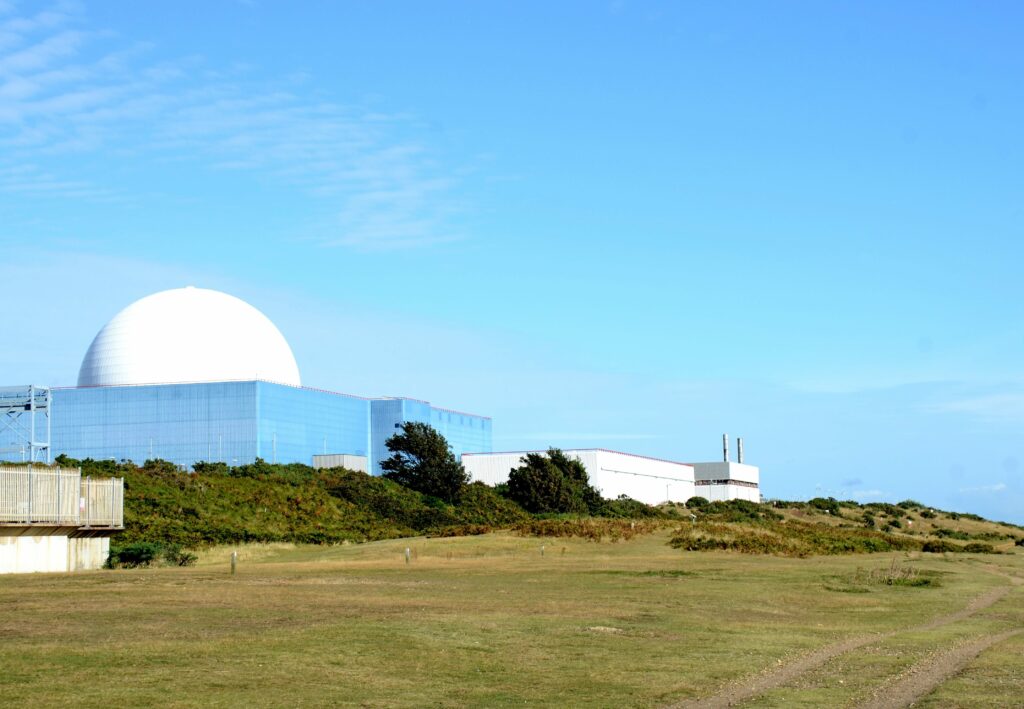EDF Energy has announced a £1.3 billion financial boost in order to maintain and expand the UK’s 2023 nuclear output.
The energy supplier, a UK subsidiary of French state-owned energy company EDF, currently manages eight nuclear power stations, five of which are generating and three that are refuelling, across which 37.3TWh was generated last year.
The investment will be allocated to the five generating stations, which are located in Suffolk, Torness, Hartlepool, and two in Heysham, and aims to help sustain the current output levels for at least the next three years.
This injection of funding will also facilitate the hiring of over 1,000 new employees in 2024 across the company’s various UK nuclear businesses.
The station based in Suffolk, also known as Sizewell B, has so far generated over 250TWh in its 29 years of operation and is currently providing 13% of the UK’s nuclear power consumption.
Sizewell B also has the potential to generate for at least a further 20 years beyond its current end of generation date of 2035.
Extending the lifespan of these stations, and of EDF’s four operating advanced gas-cooled reactor (AGR) stations, has become a widescale ambition for the company.
As it stands, the nuclear power stations have generated over 35% more electricity than initially forecast at the time of acquisition, with the extra output coming in at 212TWh.
EDF Energy achieved this through successfully extending lifespans and improving general operational performance, practices which will potentially be applied to the AGR stations at the end of 2024.
Mark Hartley, managing director of EDF’s nuclear operations business, said: “Looking ahead, our aim is to maintain output from the four AGR stations for as long as possible and extend Sizewell B by a further 20 years, out to 2055. Maximising output also helps preserve the critical nuclear skills and capabilities that will be valuable for future nuclear projects.”
Nuclear energy in the UK
In 2023, low-carbon sources provided 51% of the electricity used by Britain with nuclear energy making up 14.2% itself.
There have been several national efforts set in motion over the past year, alongside EDF Energy projects, which have supported the growth of UK nuclear energy industry.
In July, the UK government launched a new trade body called Great British Nuclear (GBN), which detailed the government’s ambition to achieve 24GW of nuclear energy in operation by 2050.
GBN specifically encourages the development of small module reactors (SMRs), which have a power capacity of up to 300MW per unit.
SMRs are also cheaper and, more importantly, quicker to construct, because they are significantly smaller in size than conventional nuclear reactors.
The UK government also announced £157 million in grants to bolster the development of nuclear projects across the country.
The funding is spread among several firms and organisations, including the National Nuclear laboratories in Preston and Warrington, receiving £16 million and £15 million respectively, and the Ultra Safe Nuclear Corporation UK, which was awarded £22.5 million.
October saw the Department for Energy Security and Net Zero (DESNZ) launching a new skills centre called the Glove Box Training Facility in Sellafield.
The aim of the site is to reduce the amount of training conducted within nuclear plants and offer a standardised training approach, especially around handling hazardous materials.
EDF Energy has also had projects in the works, opening its new nuclear power plant to investors in September of last year.
The new facility is called Sizewell C and will be located in Suffolk alongside Sizewell B. EDF said it will be a 3.2GW nuclear power plant, housing what the government says are two of the most powerful nuclear reactors in the world.
Despite the evident support for the UK’s nuclear energy, some within the energy industry have questioned the timeline and costs associated with the low-carbon option, and instead suggest that renewable energies like wind and solar are cheaper and more reliable.





